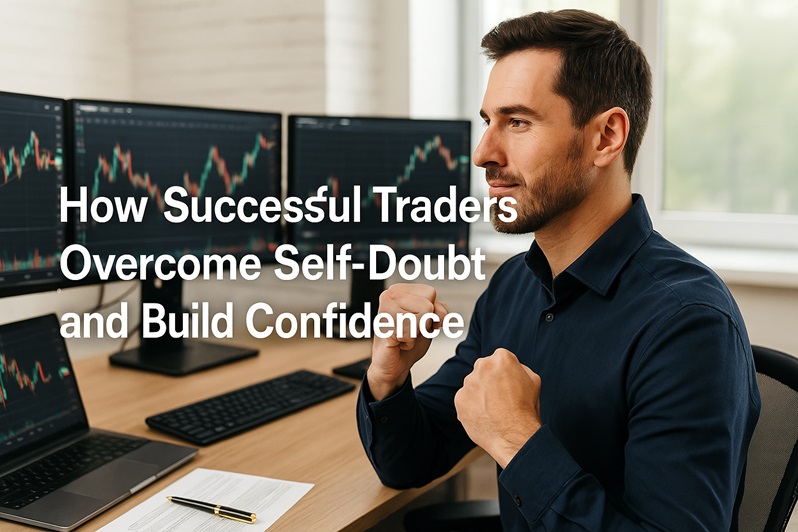
Trading is as much a mental game as it is a technical one. Even the most skilled traders face moments of doubt, hesitation, and fear—especially after a losing streak. Yet, what separates consistently profitable traders from the rest is their ability to bounce back. Confidence in trading isn’t innate; it’s developed through mindset, structure, and experience. This post explores how successful traders overcome self-doubt and cultivate lasting confidence.
Understanding the Root of Self-Doubt in Trading
Self-doubt in trading often stems from fear of loss, past failures, or lack of a clearly defined system. When results don’t align with expectations, it’s easy to question your skills or strategy. Many traders also struggle with comparing themselves to others, especially in communities or social media where success is often exaggerated.
Successful traders recognize these psychological traps early on. Instead of letting emotions cloud their decisions, they focus on reinforcing discipline. They accept that losses are part of the process and shift their mindset from “I need to win” to “I need to execute well.” This reframing turns self-doubt into an opportunity for growth.
Building Confidence Through Structure and Routine
Confidence thrives in structure. Top traders follow a clear routine: analyzing the market at the same time daily, reviewing performance metrics, sticking to predefined entry and exit rules. This consistency reduces uncertainty and builds trust in their process—even during drawdowns.
In addition, they keep detailed trading journals that track not only results but also the reasoning behind each trade. Reviewing these journals helps them identify patterns of success and areas for improvement. Over time, these insights become proof of progress and fuel their belief in their own system.
The Power of Reflection and Mindset Training
Rather than ignoring negative emotions, successful traders reflect on them constructively. They ask: “Why did I feel doubt here? Was it based on fact or fear?” This introspection leads to better self-awareness, which is crucial for growth.
Some also practice techniques like visualization or mindfulness to stay calm under pressure. Others work with trading mentors or coaches to get feedback and accountability. By investing in their mental edge, these traders treat confidence not as a luxury, but as a skill to develop.
Conclusion
Every trader battles self-doubt. The difference lies in how they respond to it. Successful traders don’t avoid uncertainty—they prepare for it, manage it, and rise above it. By building structure, maintaining self-awareness, and committing to consistent improvement, they cultivate a deep, resilient confidence that guides them through all market conditions.
FAQs
Why is confidence important in trading?
Confidence helps traders make decisions based on logic rather than fear or impulse, which improves long-term performance.
How can I recover confidence after a losing streak?
Focus on reviewing your trading plan, analyzing your journal, and sticking to your process without chasing losses.
Is self-doubt always a bad thing?
Not necessarily—self-doubt can signal areas for improvement and keep traders from becoming overconfident.
Can trading psychology really affect profitability?
Absolutely. Emotional discipline and a confident mindset are often what separates profitable traders from the rest.
What tools help build trading confidence?
Trading journals, performance reviews, coaching, mindfulness practices, and a solid routine are key tools for building confidence.
